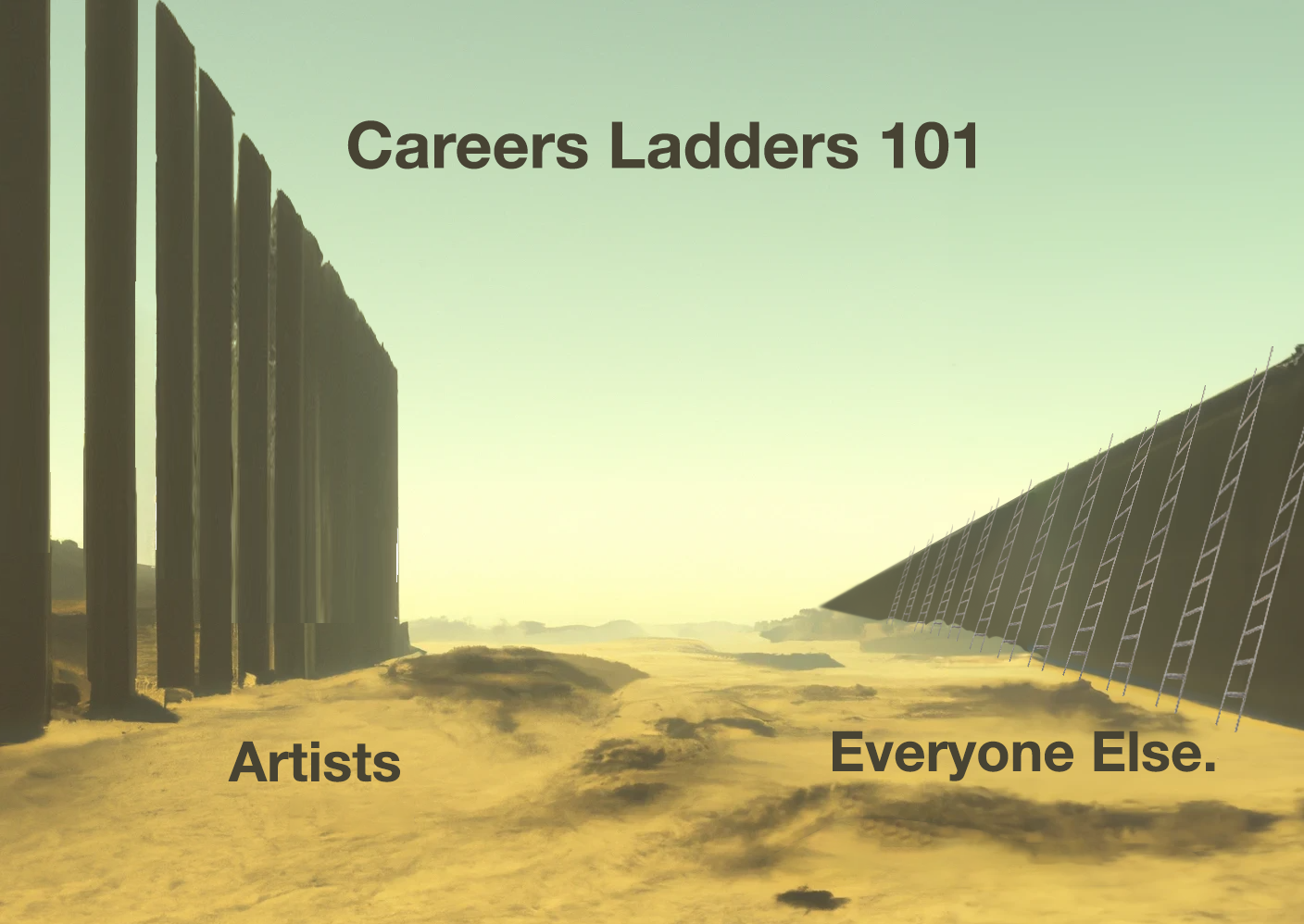Essay: Traits of a Successful Artist: 1 Part Magical Thinking, 1000 Parts Brute Force
How A.I. convinced me to keep going
Achieving success as an artist is hard, not like working on a chain gang hard or proving the existence of sub-atomic particles hard, but hard in that it demands, in one person, the traits that fuel success in either of these extreme pursuits. Every successful artist I know is driven by two things:
Magical Thinking: I can do anything!
Brute Force: I will never stop.
Most of us have one or the other and like a plane can fly with only one engine, we can accomplish a lot. You’ve known people who live their lives taking huge risks based on little evidence. They have a belief that everything is just going to work out. Quite often, it does. Sure, they fail but it doesn’t faze them because they’re on to the next thing and don’t look back. You’ve also known people who wake up every day of their lives with a single-minded focus on breaking up big rocks into little ones until the whistle blows and it’s time to go home. They climb the ladder, save for retirement, and take exactly one sick day a year.
Why am I making the case that successful artists require both traits?
Art is a “Nice to Have” Not an Essential
To answer this question we have to understand the role of art and creativity in society because it’s complicated and rife with contradictions. We adore the artist and we hold them up as gods. Fame follows any artist who has a measure of success because fame is the byproduct of envy. We experience the work of the artist and it makes us feel things we cannot access without them, things the typical person only encounters fleetingly in their life as a happy accident like falling in love. The artist has the ability to conjure that feeling in us on demand. Why would we not envy that ability?
But as important as having that feeling art gives us is, it’s not essential. Artists are not essential workers. When someone is having chest pains in a crowded restaurant, no one cries out: “Is there a songwriter in the house?” In Maslow’s hierarchy of needs, art exists in the top one percent of the pyramid after every other need is met. If you get laid off from your job the first things you’re going to shed are the concerts you were planning to attend next month and your Netflix subscription. Okay, let’s not go crazy. You can always use your parent’s password for Netflix like everybody else.
In our society, there’s a huge gap between the value we place on art and what we’re actually willing to pay or sacrifice to have it. Arts are the first things cut from school budgets. Most parents are proud to have a child who sings, acts, or writes poetry in high school, but are embarrassed by that child ten years later when they are still doing it. While you can go to school and get a degree in film, an MFA in writing, or a music degree as I did back in the early Mesozoic period, when you graduate, there is no sturdy ladder with clearly marked signage and convenient handrails. More importantly, there is no guaranteed paycheck at the end of every two weeks. You are on your own in a Hunger Games competition with droves of bright, talented, and ambitious people with newly minted dreams in a distribution landscape (the Internet) with no gatekeeper and no limit to how much can be published.




